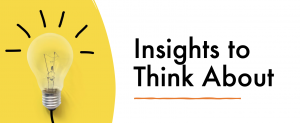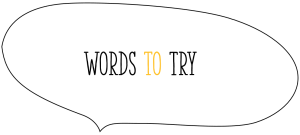2 Queer, Intersex, Trans, +
Rebecca Yoshizawa

“Cisgender” describes those who identify mostly comfortably with the gender they were ascribed at birth. This gender is attached, by the dominant gender ideology, to the sex organs that adults perceive of newly-born bodies. If one is not cisgender, they may identify as or with the idea of being intersex, trans, or other identities.
Intersex refers to anatomies that do not fit with the dualistic idea of sexual dichotomy. Many people are born with genitals, gonads, chromosomes, and hormonal balances that defy categorization into only either male or female. For instance, a person can have the male chromosomes XY, which make a developing fetus’ body increase production of androgenizing hormones. These hormones, like testosterone, lead to the development of a penis and testes. However, an intersex condition called androgen insensitive syndrome can be present in some fetuses, wherein their bodies lack the capability to respond to testosterone or other similar hormones. In this case, when the baby is born, genitals may appear female. This is just one way to be intersex. Throughout human history, there have always been intersex people, and different cultures have responded to them in highly varied ways: sometimes celebratory, sometimes violent.
| L | Lesbian |
| G | Gay |
| B | Bisexual |
| T | Trans |
| Q | Queer (or Questioning) |
| I | Intersex |
| A | Asexual |
| 2S | Two-spirit |
| + | …many other identities |
Someone who is trans, or who identifies as having trans experience, does not comfortably identify with the gender that they were assigned at birth. A trans person may experience this through gender dysphoria, feel they have always known they were trans, have lifelong or emergent needs for “cross-gender” expression and exploration, or use the “wrong body” narrative to express their self-knowledge. Shifting self-expression through clothes, hairstyles, and other self-styling may be a part of trans experience. Choosing to undergo medicalized interventions such as hormone therapy and gender affirmation surgeries are also a part of some people’s experience of being trans. Social and interpersonal changes can also be a part of being trans, by seeking changes to names, documents, and pronouns. As with intersex, there have always been people of trans experience in every society, some celebrated and some denigrated. Discrimination or hatred of trans people is called transphobia.
“Queerness”, or being queer, is a very broad term describing fluidity in sex, gender, and sexuality. To be queer means that a person does not conform, in different ways, heteronormativity and cissexism. The queer community encompasses all people who defy dominant gender ideology, often expressed in the acronym (and variations of it) LGBTQIA2S+. Queerness is expressed culturally as well, such as in drag, a performance form with a focus on gender. As with being intersex and trans, queerness may be embraced, or queer people may be disproportionately affected by violence in society.
 LGBTQIA2S+: lesbian, gay, bi, trans, queer, intersex, asexual, two-spirit, and other ways that people identify as not conforming to dominant gender ideology and/or heteronormativity
LGBTQIA2S+: lesbian, gay, bi, trans, queer, intersex, asexual, two-spirit, and other ways that people identify as not conforming to dominant gender ideology and/or heteronormativity
Queer: not cisgender, cissex, heterosexual, or other identifiers of dominant gender ideology
Cisgender: someone who identifies as the gender associated with their sex assigned at birth per dominant gender ideology
Trans(gender): someone who does not identify, in various ways, as the gender associated with their sex assigned at birth per dominant gender ideology
Intersex: a person born with anatomical reproductive characteristics that do not fit clearly into ‘male’ or ‘female’
Sexuality: a range of capacities for sexual attraction to others
Gender fluidity: a flexible understanding, expression, or identity of gender
Gender dysphoria: a psychological term for distress associated with a strong desire to be another gender
Non-binary: a gender identity that does not conform to either exclusively masculine or feminine ideals
Transphobia: discrimination against or hatred of trans people
Ally: a person who is not a member of, but supports the rights and interests of, a marginalized group
lesbian, gay, bi, trans, queer, intersex, asexual, two-spirit, and other ways that people identify as not conforming to dominant gender ideology and/or heteronormativity
not cisgender, cissex, heterosexual, or other identifiers of dominant gender ideology
someone who identifies as the gender associated with their sex assigned at birth per dominant gender ideology
someone who does not identify, in various ways, as the gender associated with their sex assigned at birth per dominant gender ideology
a person born with anatomical reproductive characteristics that do not fit clearly into 'male' or 'female'
a range of capacities for sexual attraction to others
a flexible understanding, expression, or identity of gender
a psychological term for distress associated with a strong desire to be another gender
a gender identity that does not conform to either exclusively masculine or feminine ideals
discrimination against or hatred of trans people
a person who is not a member of, but supports the rights and interests of, a marginalized group

